The results of the AI hackathon RAIF Hackathon 2018

The other day the hackathon final for AI / ML developers - RAIF Hackathon - was held , the participants of which solved the tasks of partner companies. Under the cut our photo report and a small story about the winning projects.
First of all, on behalf of the organizing committee of the event, we thank all participants of the hackathon for their work and the presented solutions and, of course, for the feedback! She was a lot from the very beginning. It was different: sometimes we were simply asked tricky questions, sometimes they expressed doubt. At times there were a lot of emotions J, but we are extremely grateful to the participants for the fact that they did not care. For what they did not give us the descent and motivated to be better.
For our part, we tried to take into account the incoming requests - we did not agree somewhere, but somewhere we went to meet each other. So, for example, we made two waves for the provision of works in the nominations from "Utkos" and Rosreestr.
Also, many complained about the inconvenience of XML-tables, in the form of which Rosreestr data was provided, so we made a starting decision in which one of the scripts performed a rough parsing of these tables.
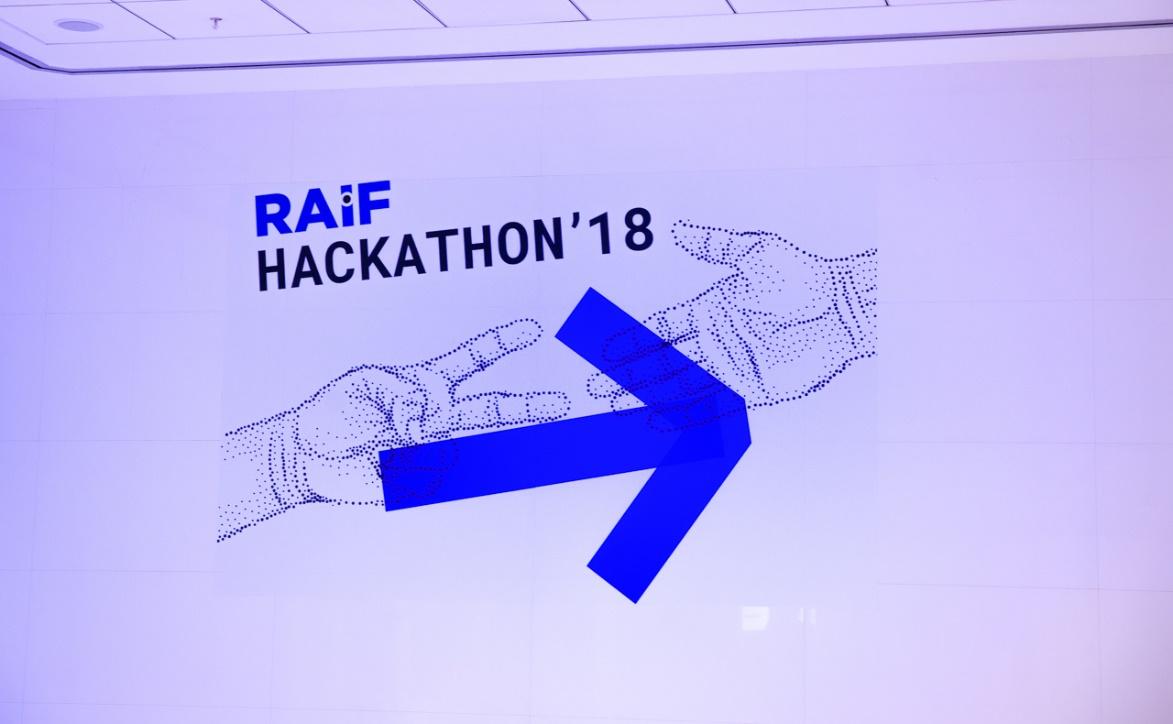
And now about the results. We received 322 applications for participation from developers from different cities of Russia and made a selection of projects. 42 teams went to the finals in the nomination from NMLK, 4 teams struggled in the nomination from Utkonos and 5 teams in the nomination from the Federal Register.
Final - as it were
October 23. Despite the early start of the hackathon, by 8.30 am the overwhelming majority of the participants had not just arrived, but had long been waiting for the start of the competition.
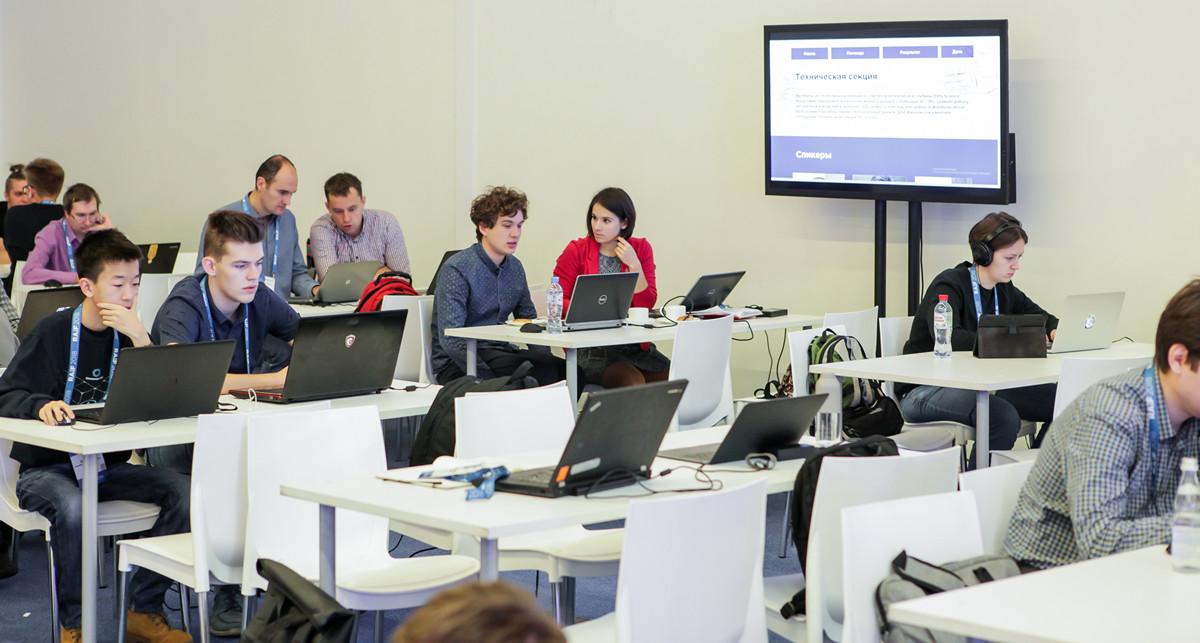
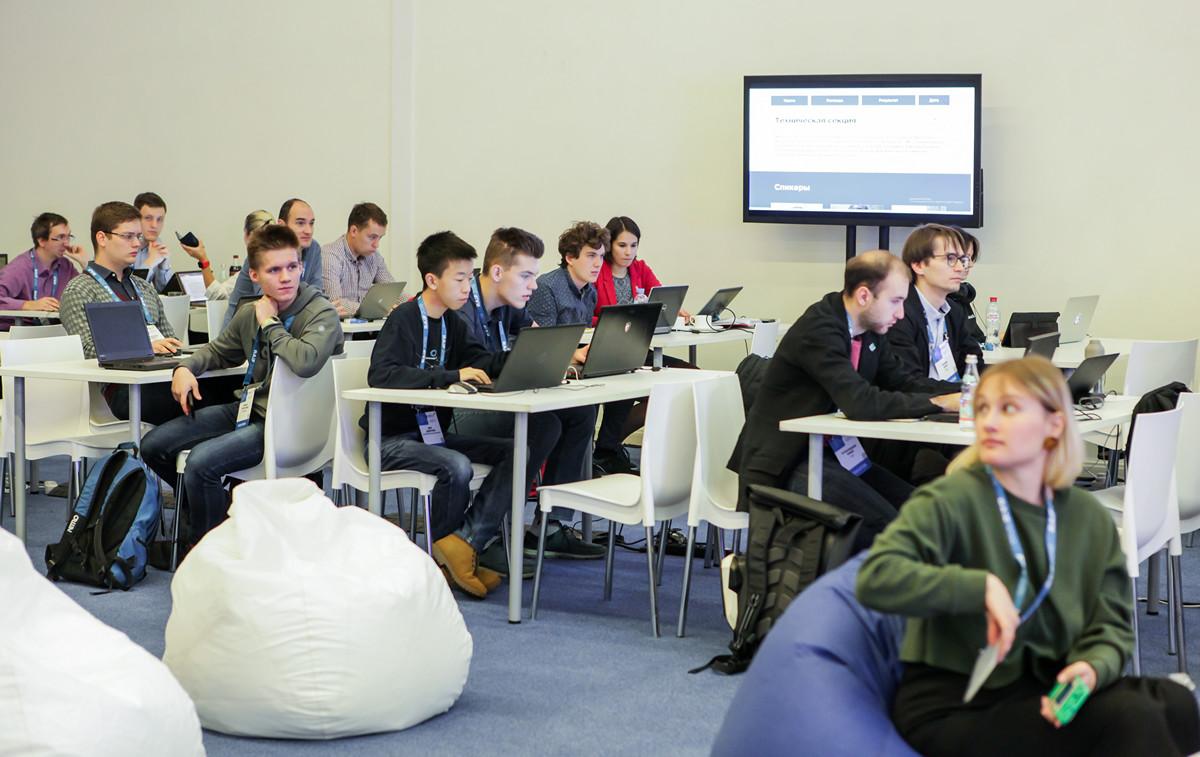
At 9 o'clock all distributed flash drives with additional data, and for the next 3 hours and 40 minutes, everyone plunged into work.


Most chose places at the tables, some preferred to sit on their ottomans.
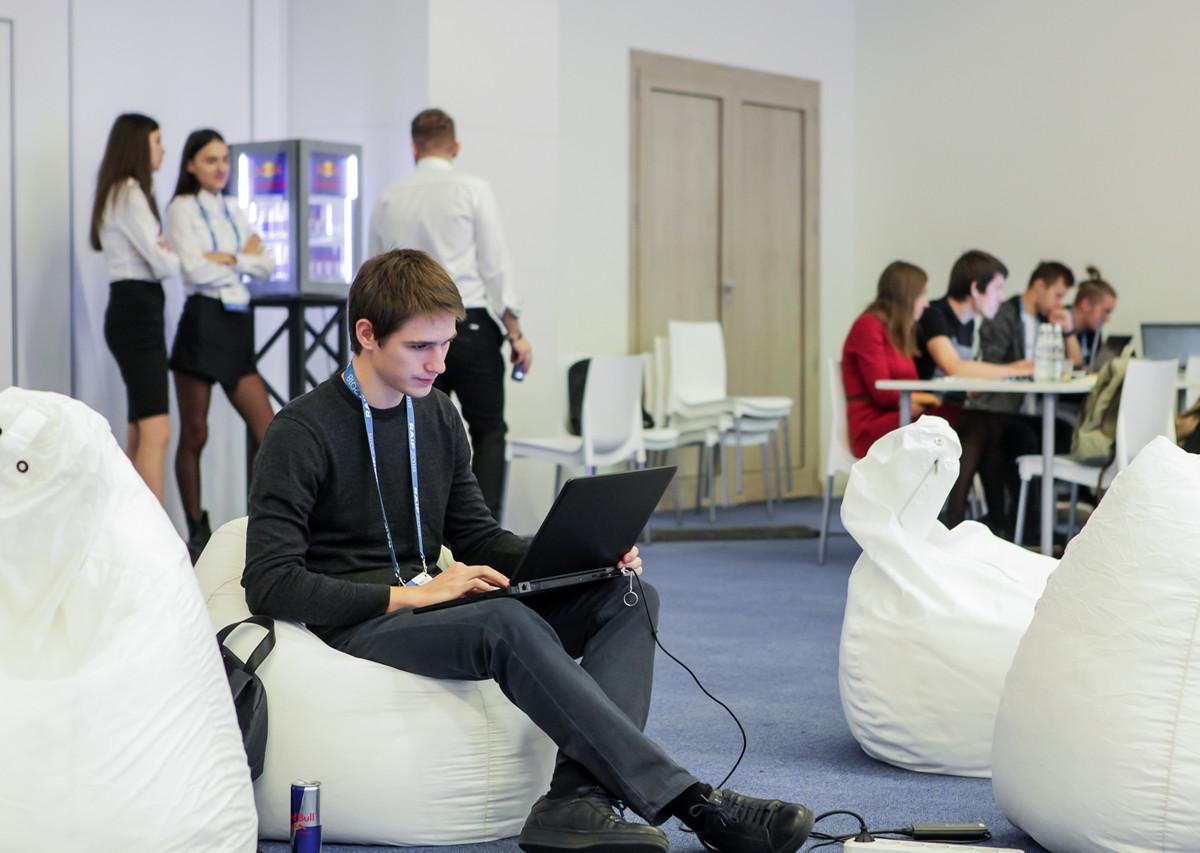
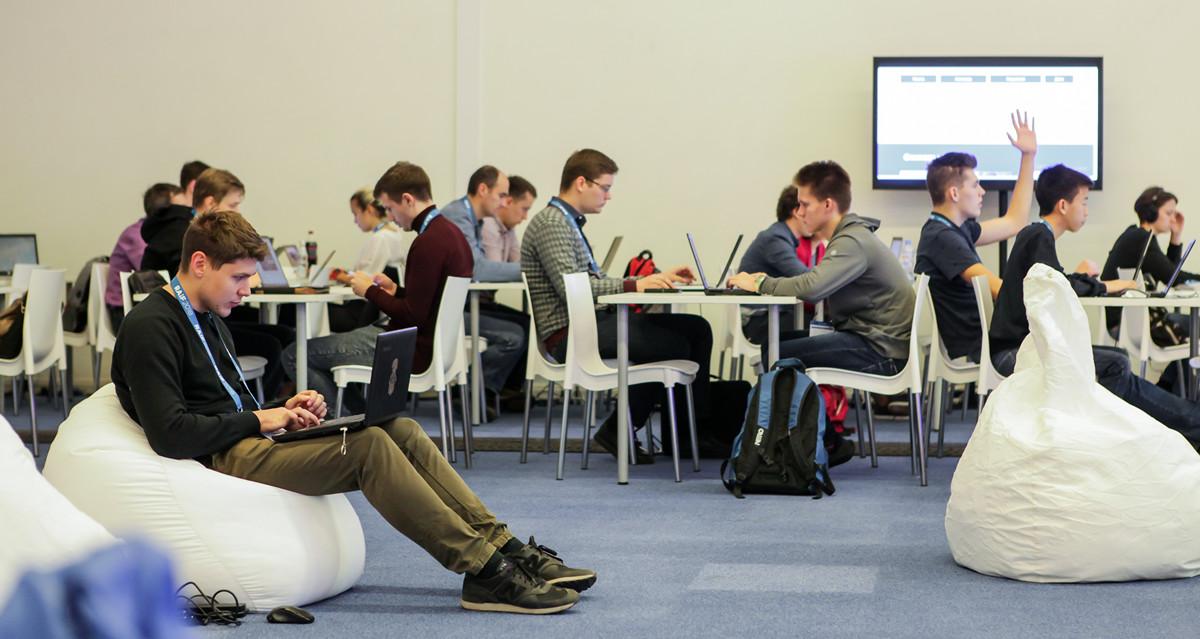
It is curious that not all the teams that solved the Rosreestr task took the data provided: some began to solve a more abstract problem, referring to the data of third-party companies.
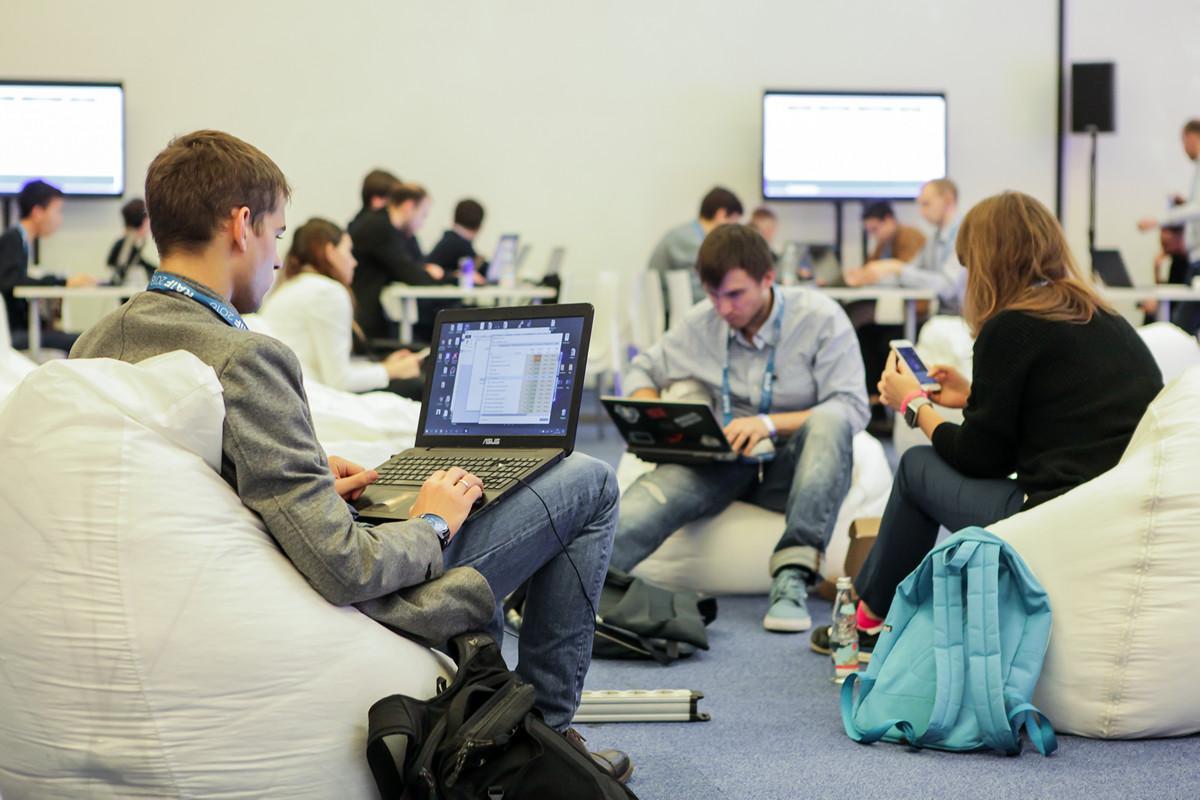
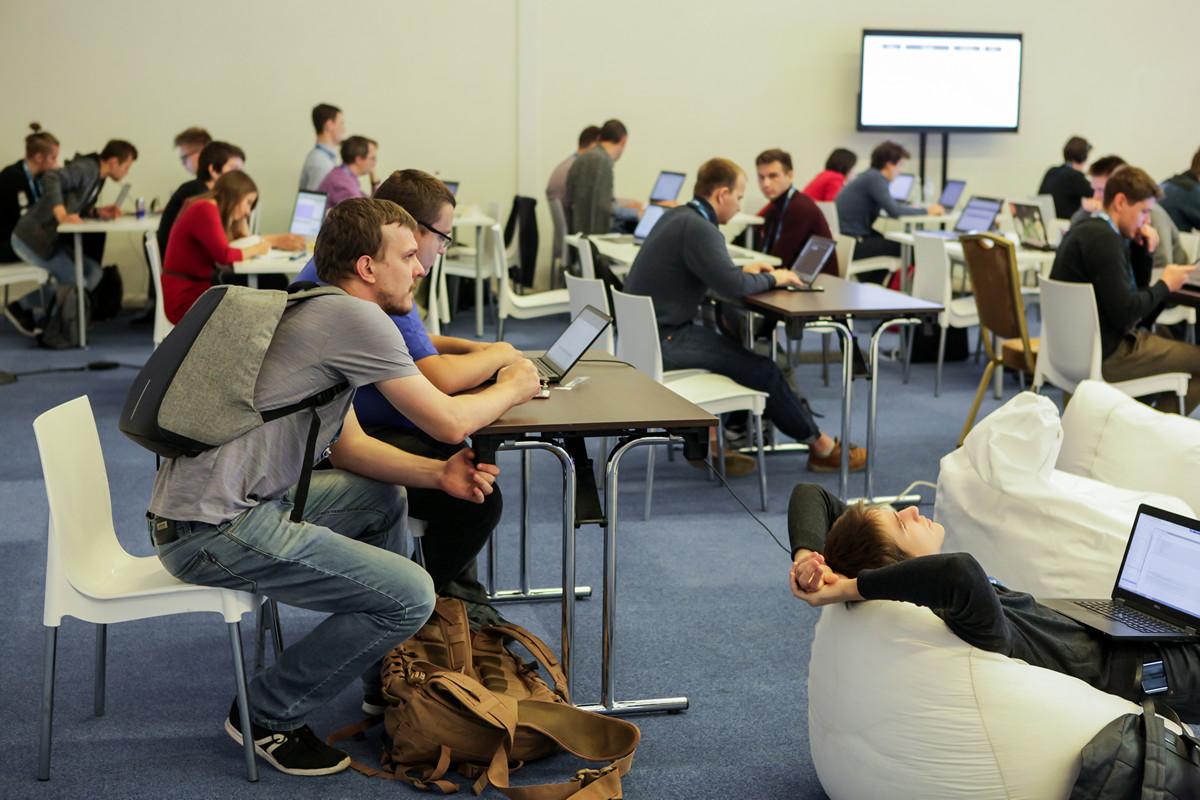
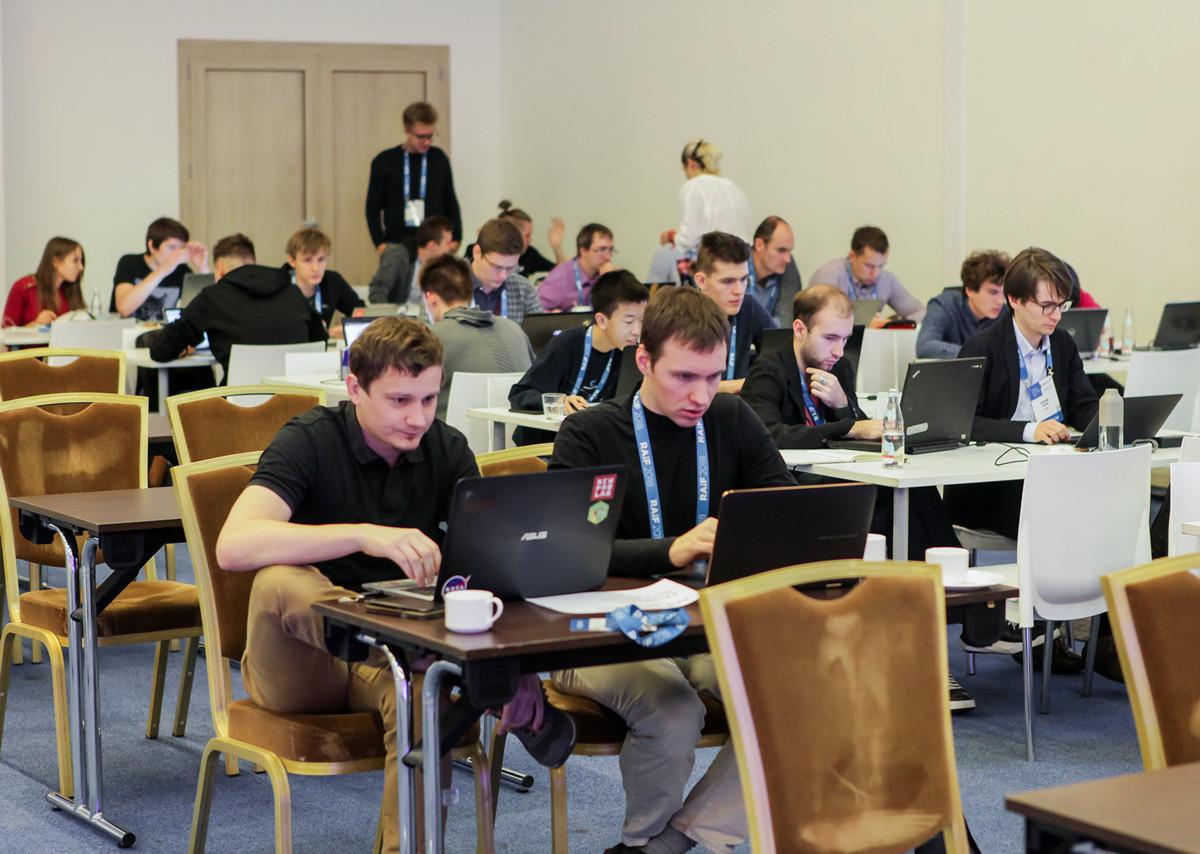
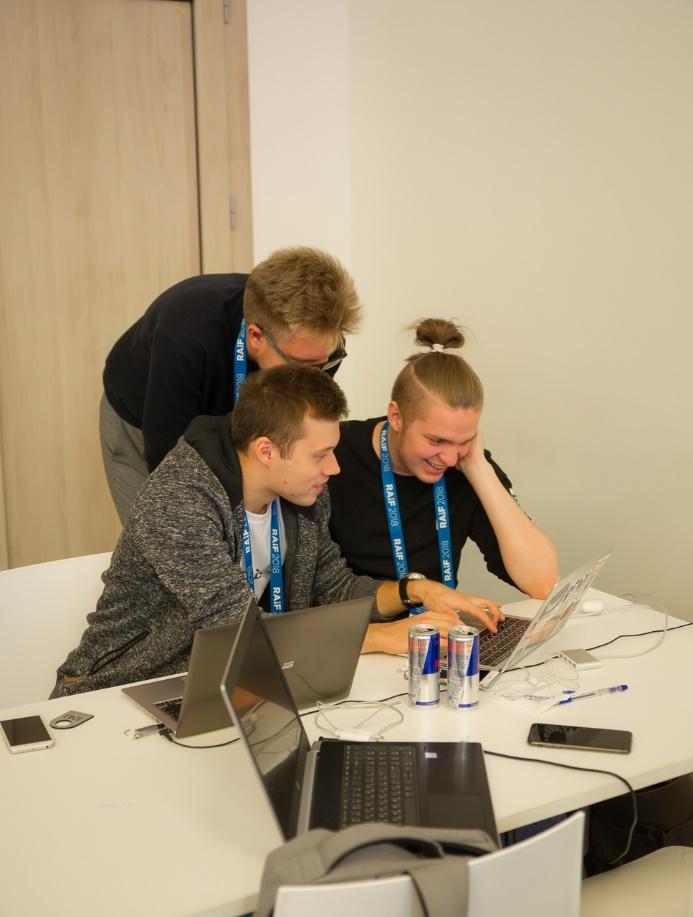
Recall that the hackathon had three tasks: one from NLMK - to accelerate the production of rolled steel, here a classic regularly updated leader table was used; and two creative tasks from Utkonos and Rosreestr: an analysis of the demand for goods and a forecast of the cadastral value of real estate, respectively. Here it was necessary not only to provide a solution, but also to defend their work before the jury. More information about the conditions of the tasks can be read here .

When the time allocated for the development was over and the participants had lunch, the stage of project presentations on solving the problems of Utkos and the Federal Register of Russian Register started. Each team was given 5 minutes to protect the work.
Three teams offered their solutions to the Utkonos

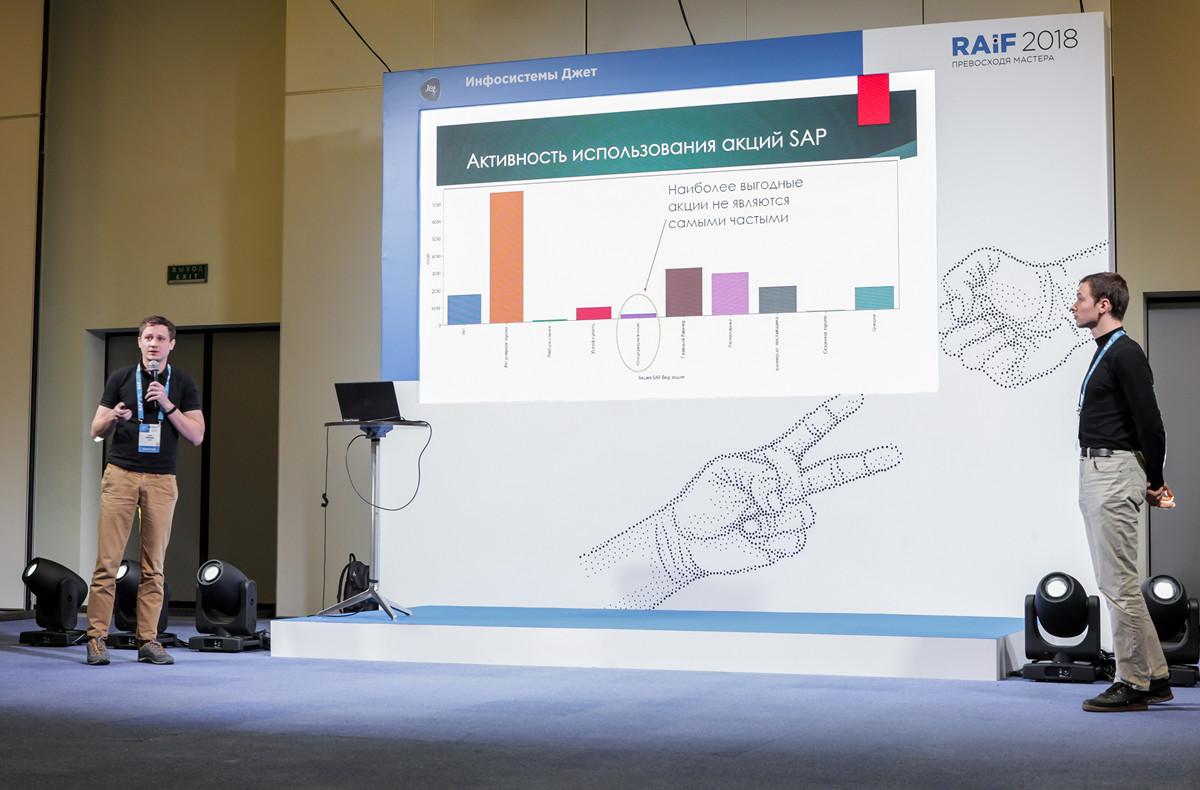
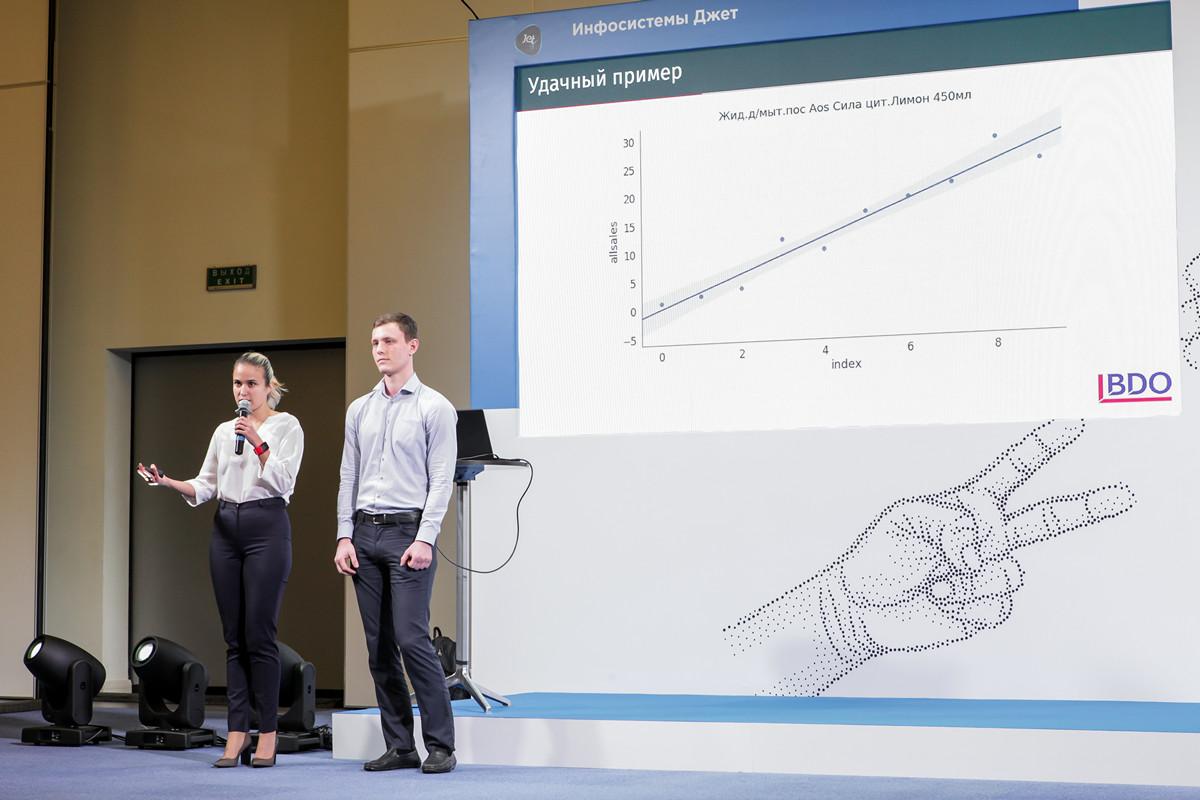
task : Five teams solved the Rosreestr task:
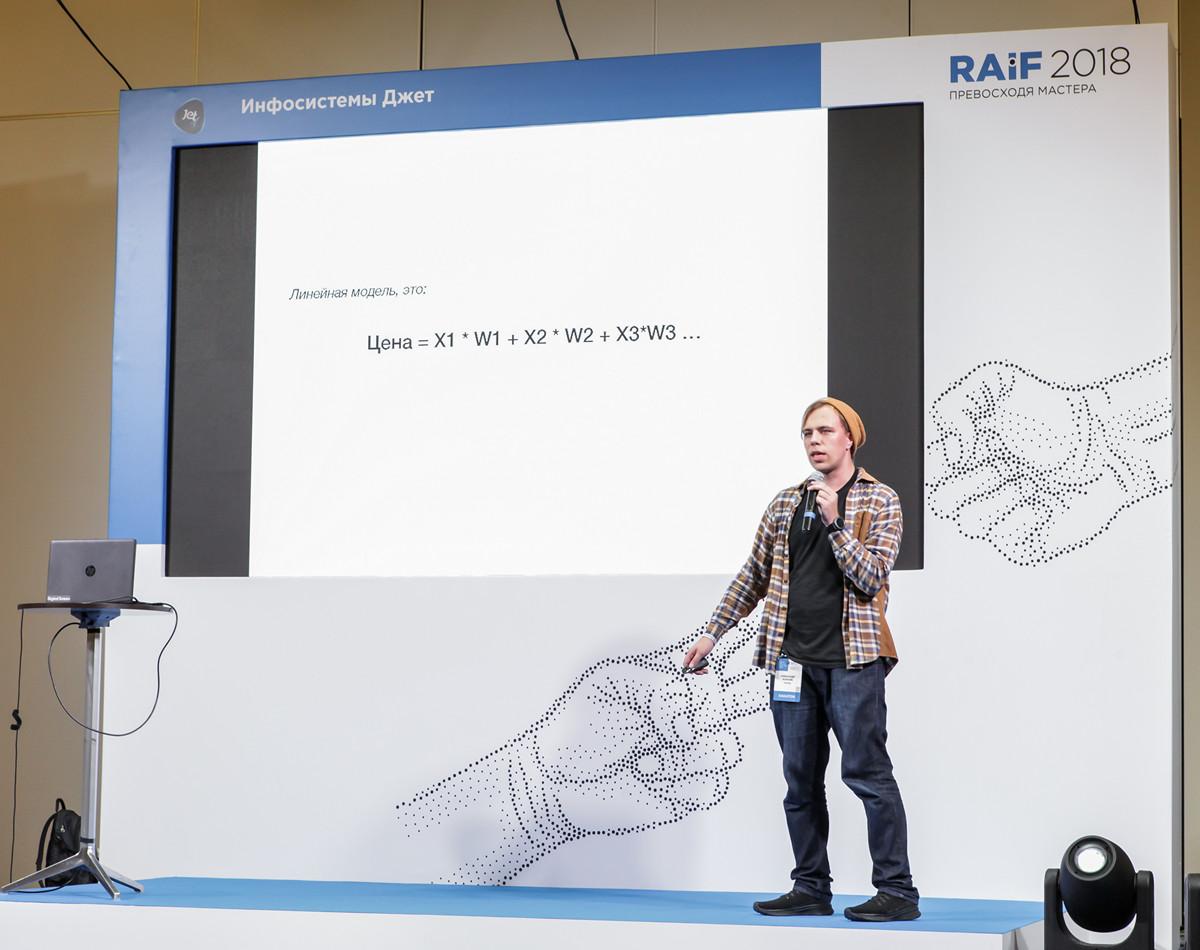
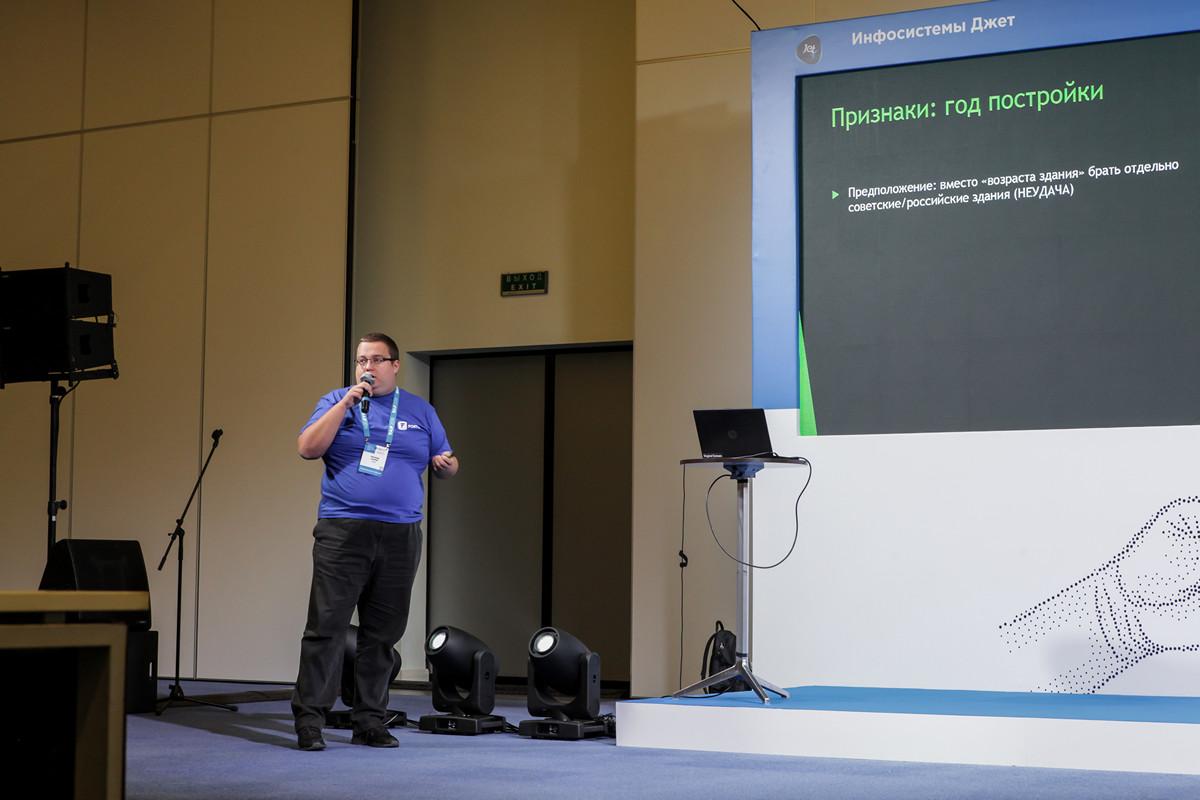
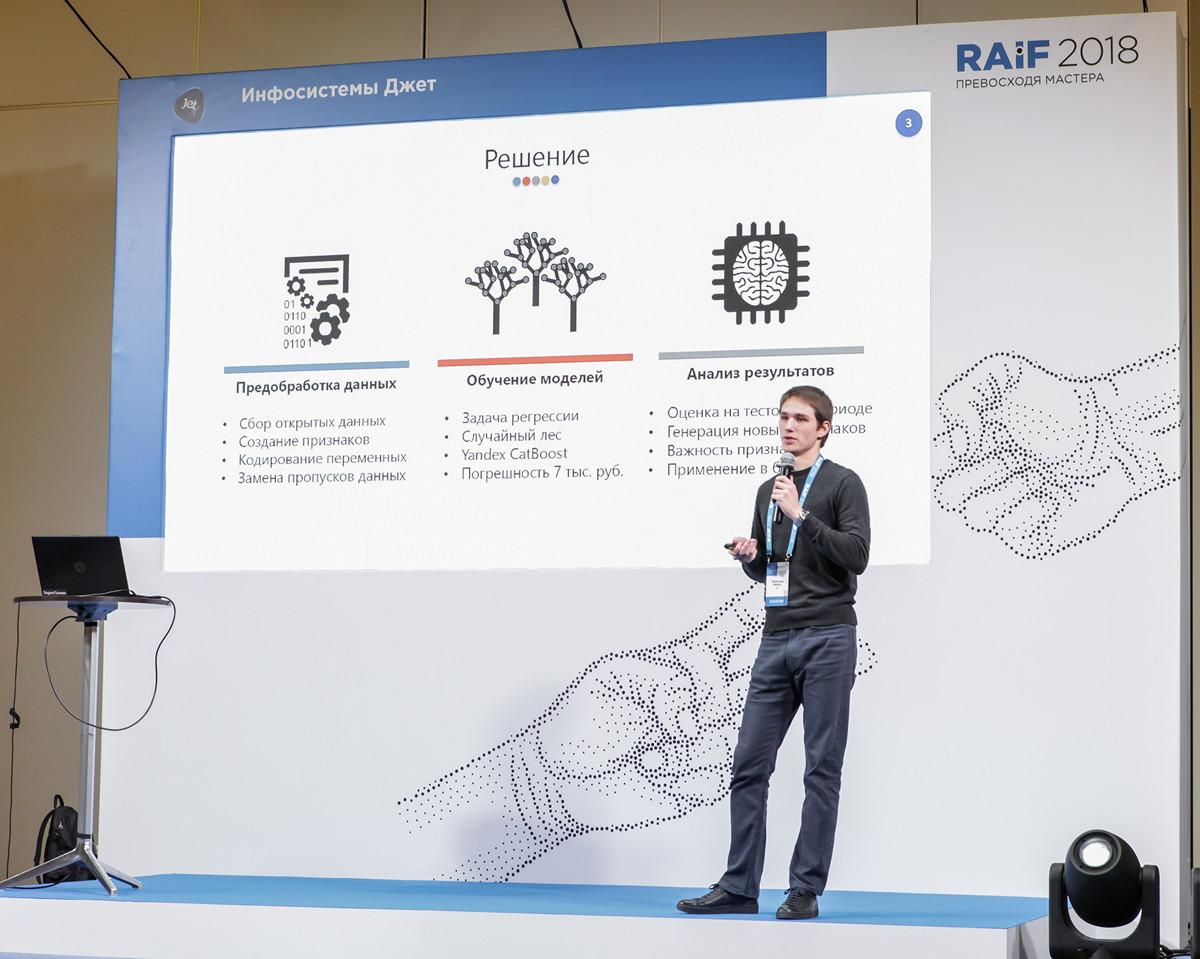

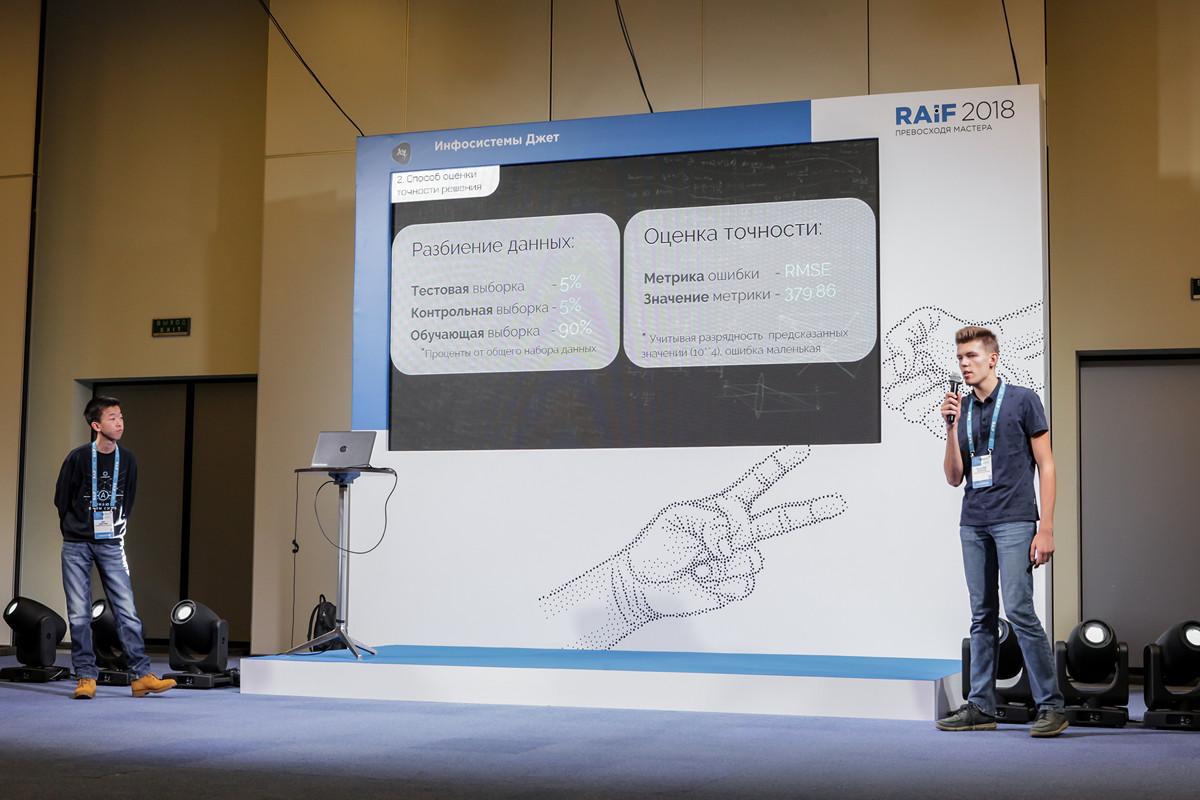

After all the presentations, the jury left to think.
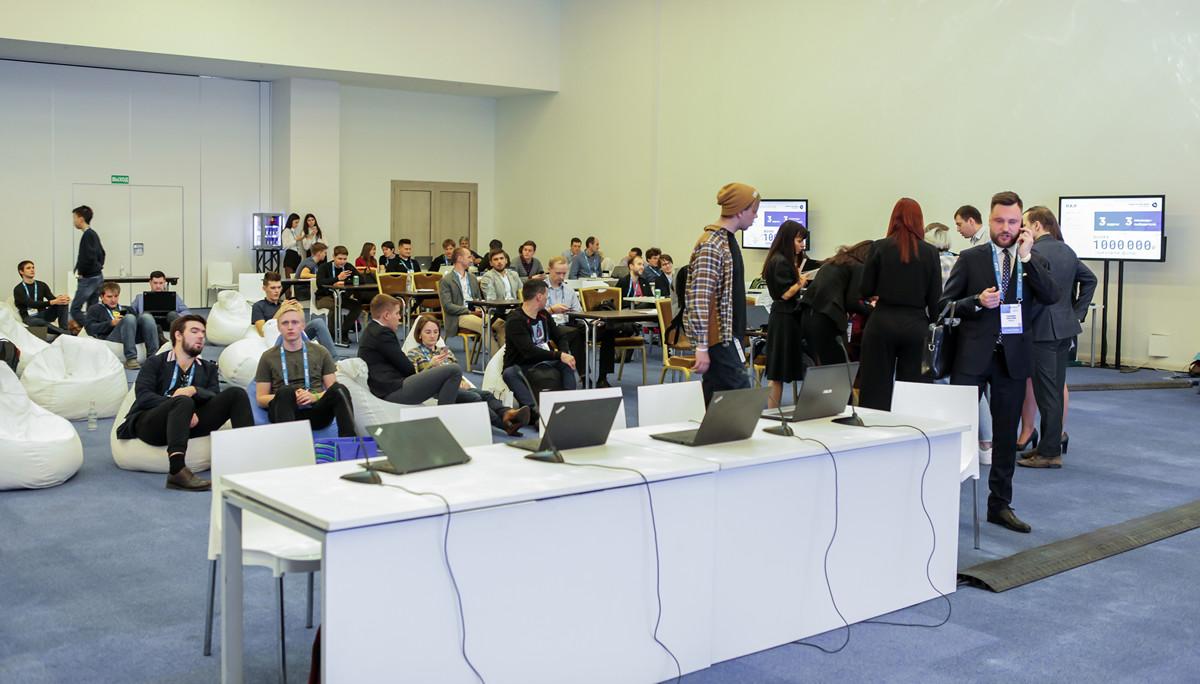
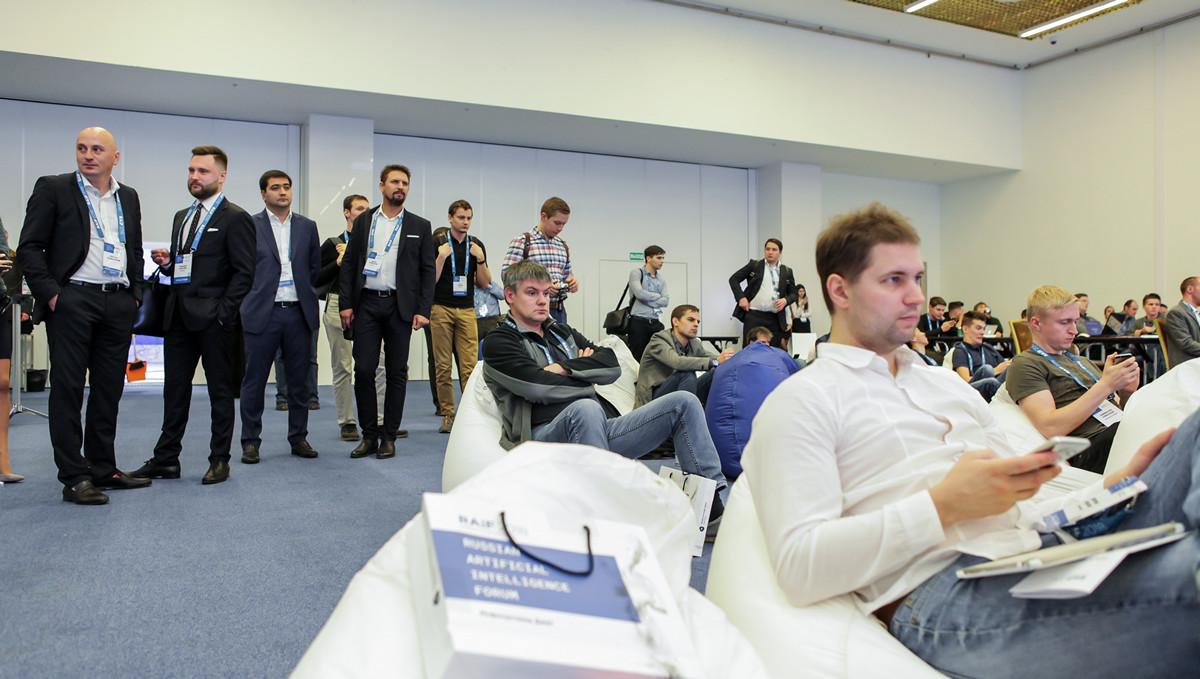
And finally, the winners were announced in each of the three nominations.
In the NLMK nomination, the victory was determined by the absolute index - the maximum predictive accuracy of the ML-model. As a result of stubborn struggle, the team won the Keksik.
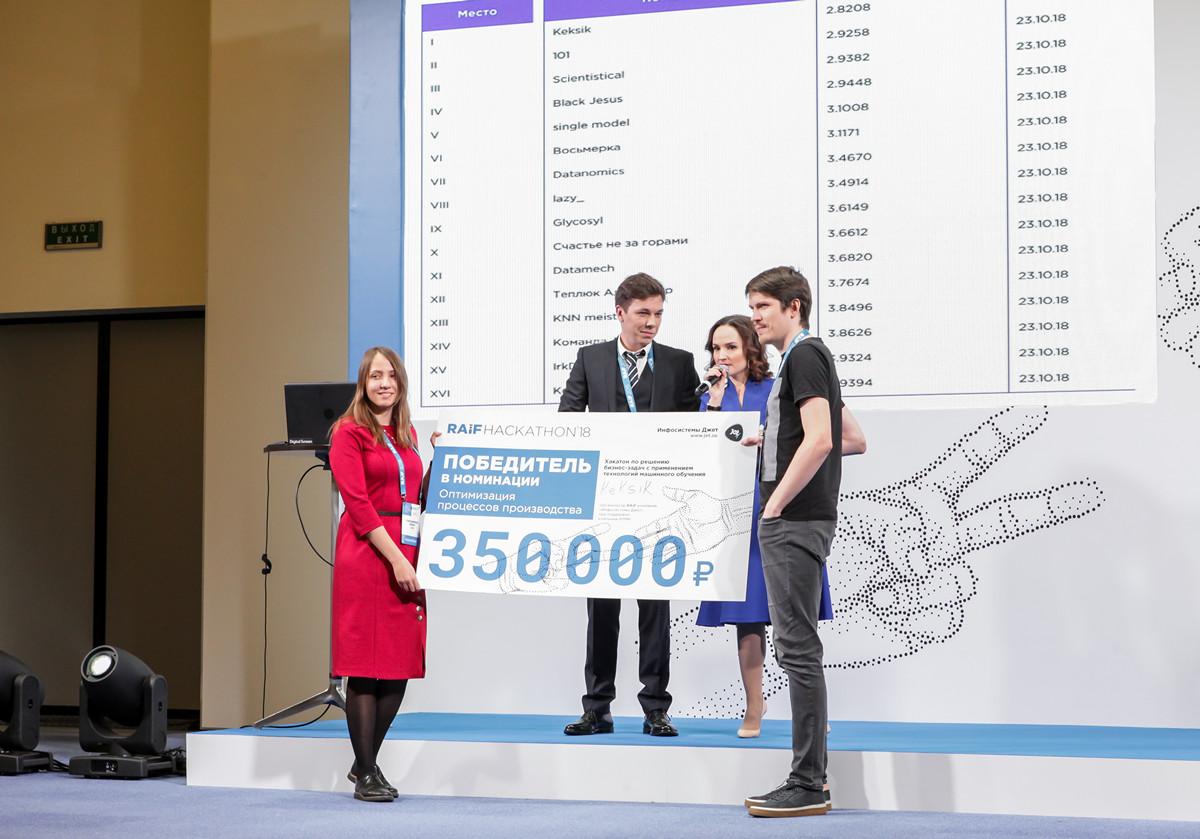
"Platypus" preferred the decision of the team with the saying name Help The Platypus. Its participants focused on the analysis of groups of related products and groups of substitute goods. The economic efficiency of the solution was also evaluated.
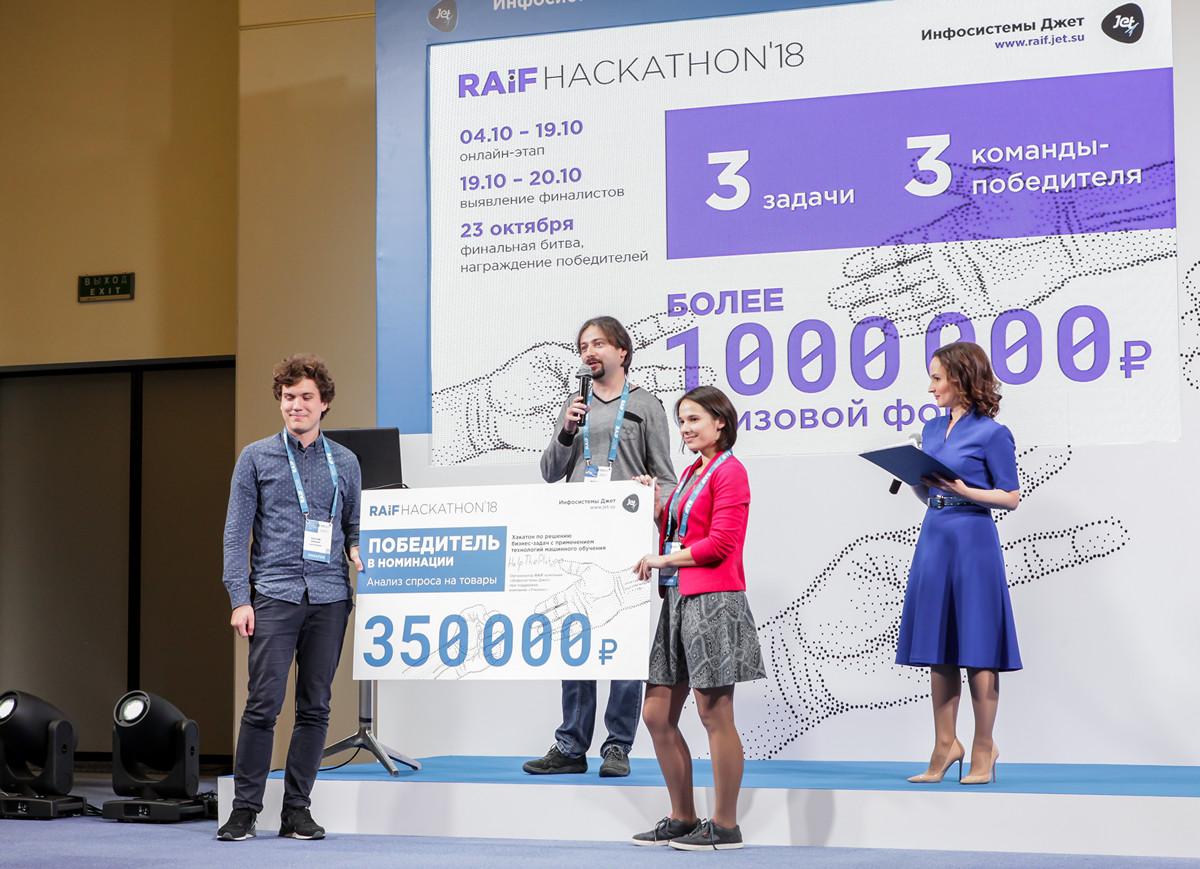
And Rosreestru liked the r_test solution most of all. The guys conducted a deep analysis of external data and used parameters such as the distance to the nearest railway station, water reservoir and points of interest (POI).
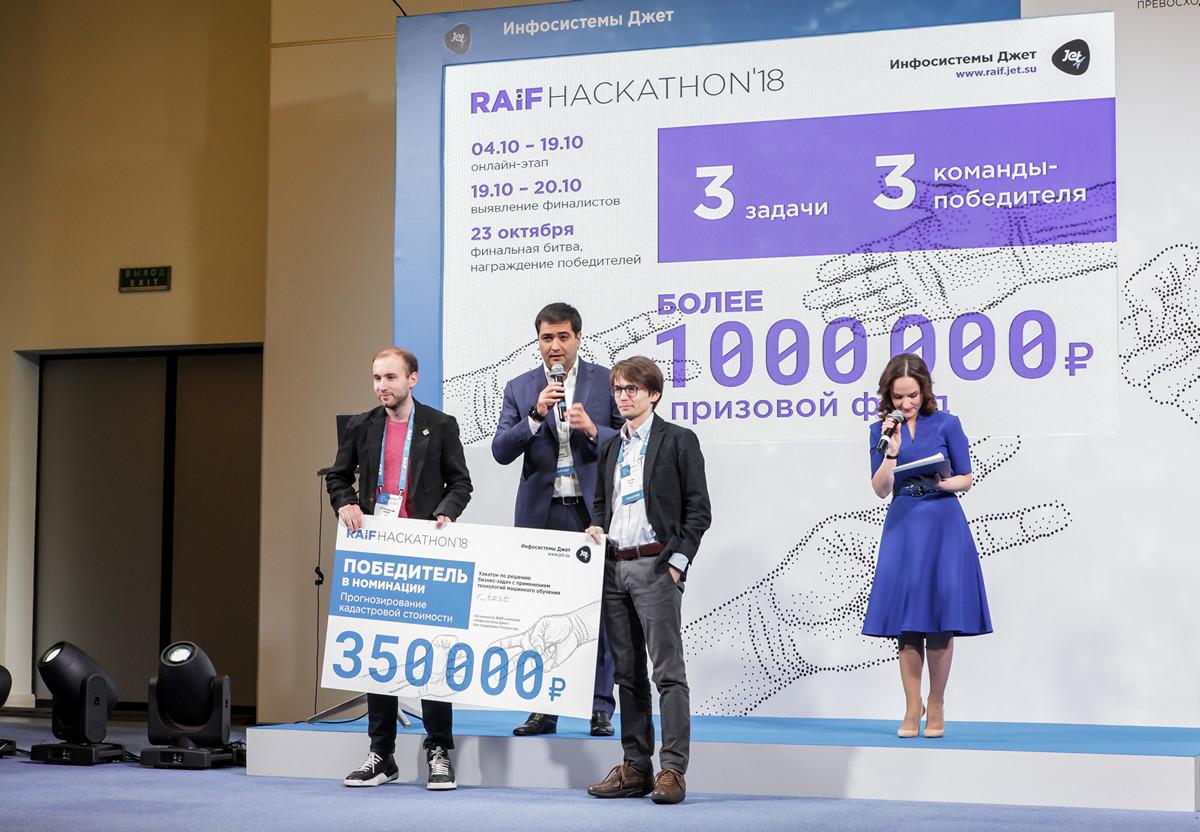
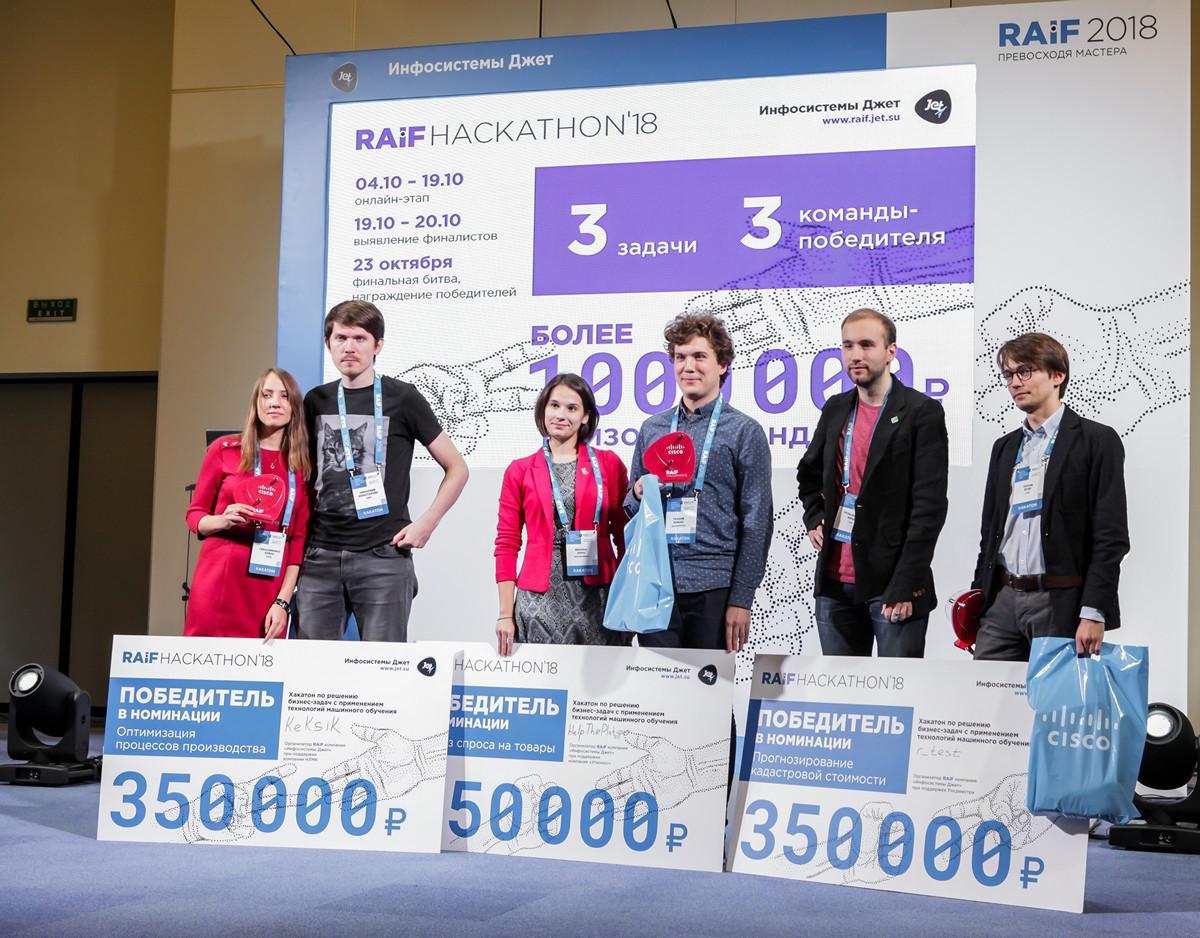
Once again, congratulations to all participants and winners!
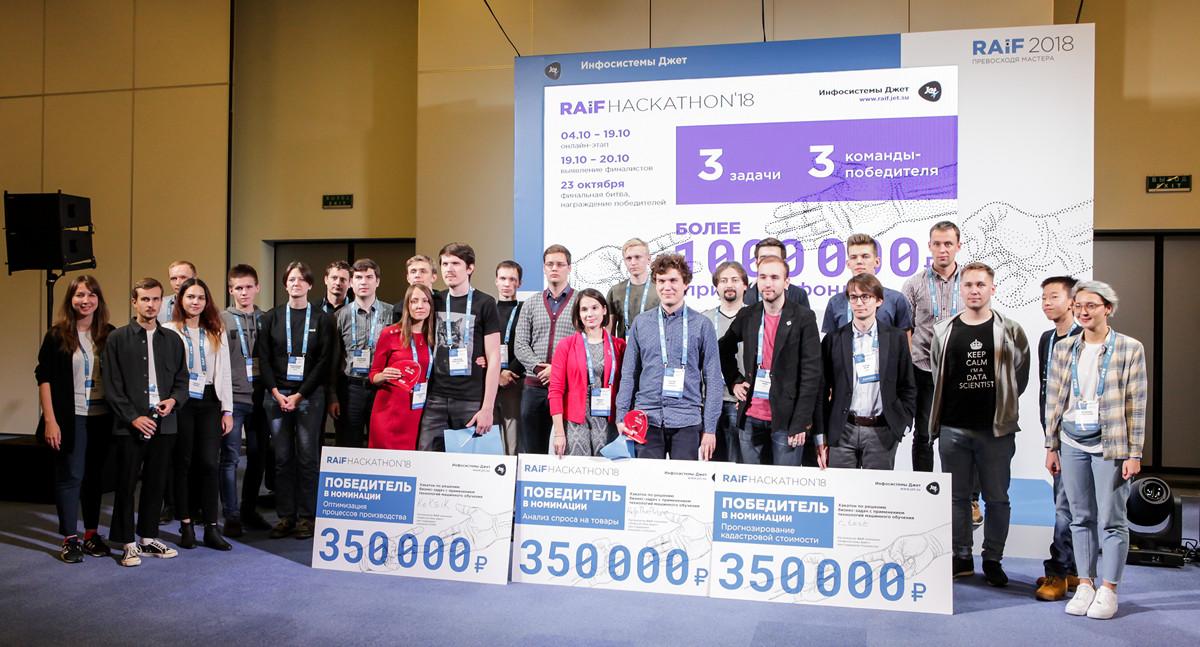
At the end of the hackathon, a technical section took place, led by Victor Cantor, author of the course Data Mining in Action. Scientists, mathematicians and Data Science experts from leading Russian companies shared their experience and the latest ML / AI case studies.
Konstantin Vorontsov ( MFTI ) spoke about thematic vector representations of texts, graphs and transactional data.
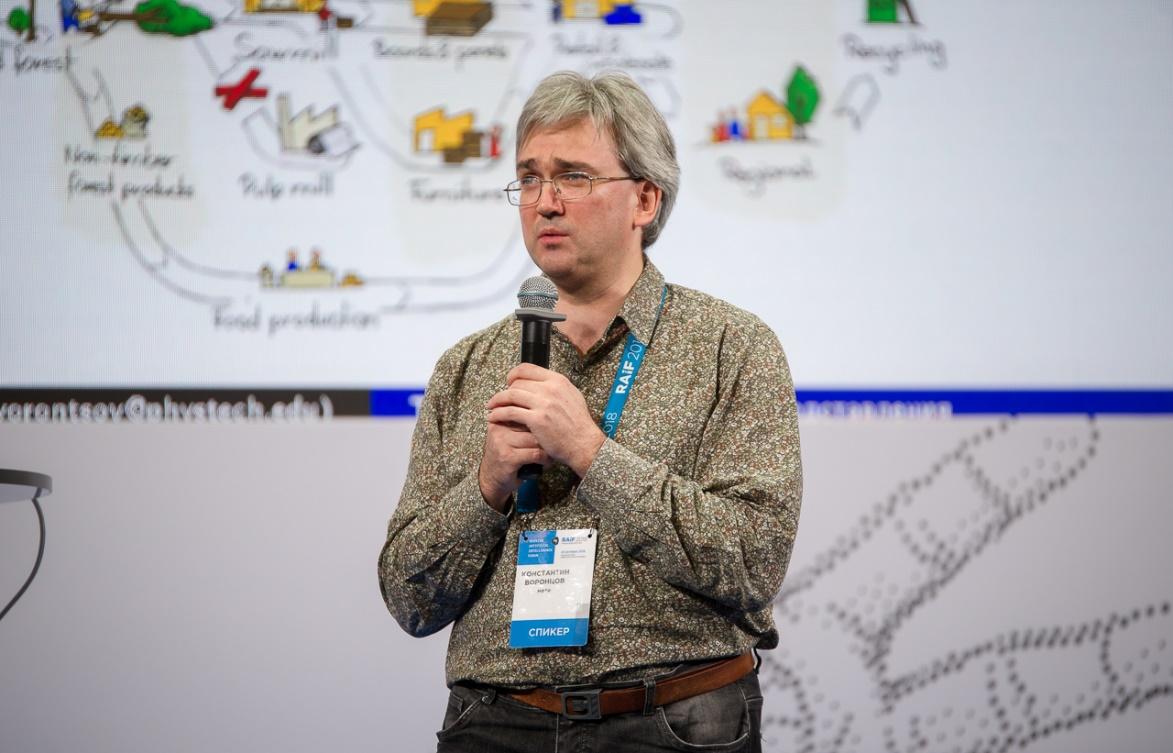
Emeli Drahl ( Mechanica.AI ) made a presentation on artificial intelligence in the production sector, which was especially interesting after the task from NLMK to optimize production processes within the framework of the hackathon.


Nikolay Knyazev ( Jet Infosystems) made a comparison of business metrics and machine learning. Choosing the right metric was one of the parameters by which the winner in the "Platypus" nomination was determined.
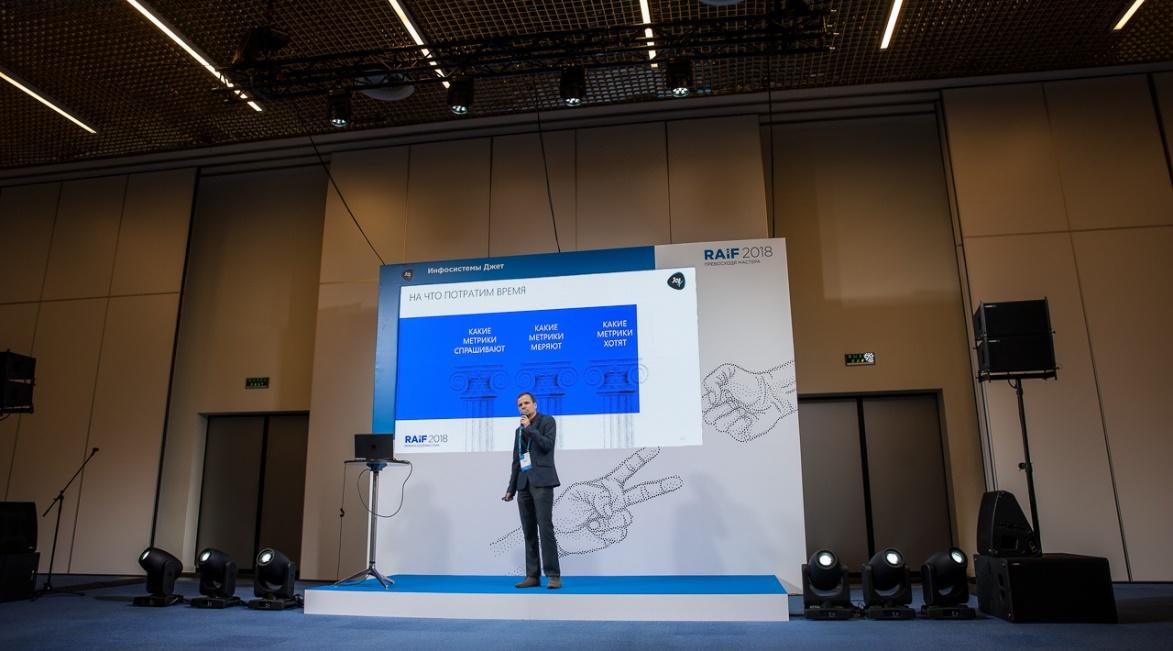
Alexey Dral (BigData Team) opened the topic of mass training on Big Data.
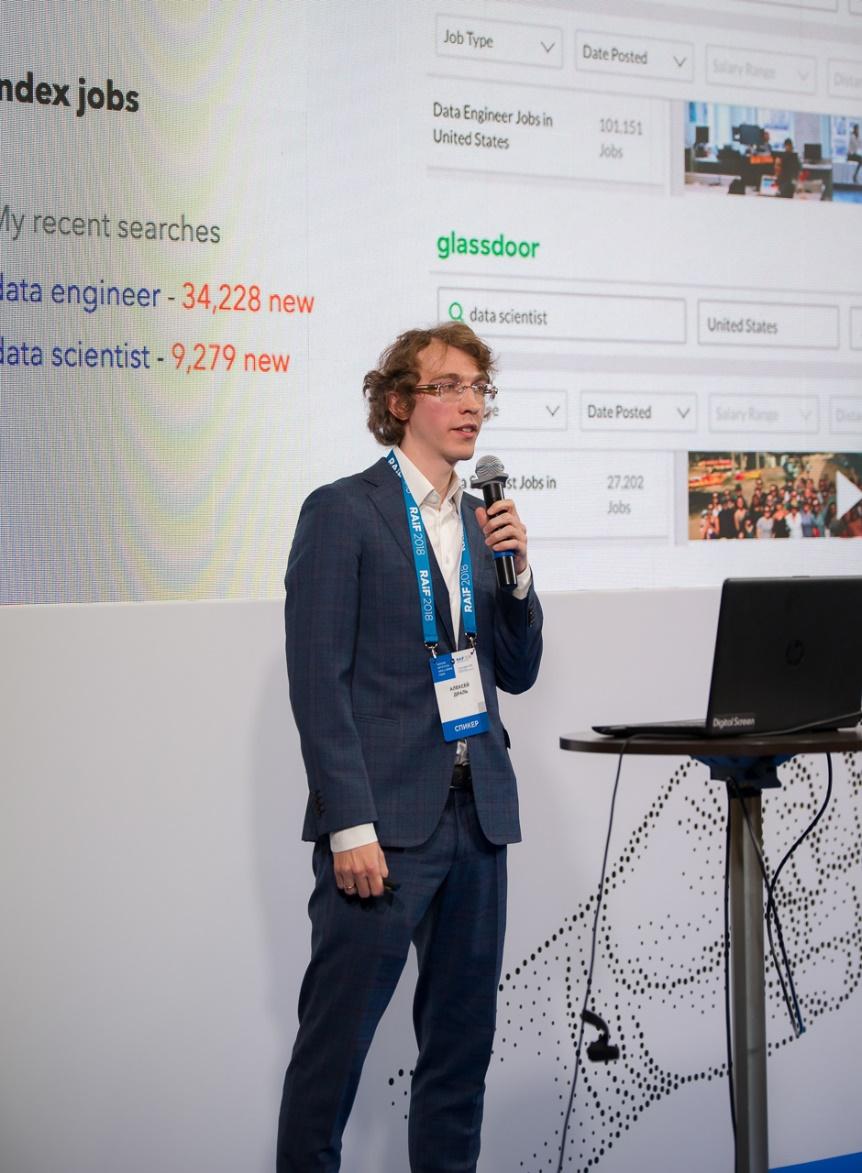
Dmitry Bugaychenko ( Odnoklassniki ) introduced those present with building a content mart using stream data analysis and reinforcement training.
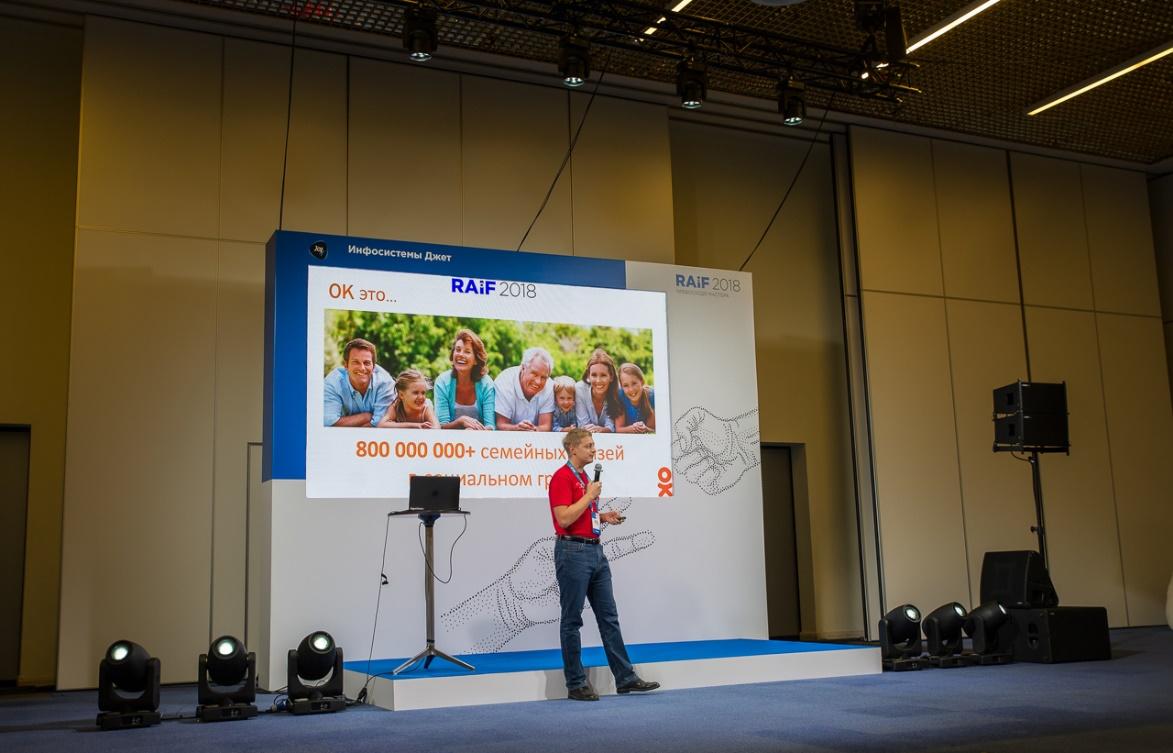
Alexey Katkevich ( Jet Infosystems ) shared with the participants how to correctly transfer ML models to production,

while Evgeny Burnayev ( Skoltech ) led cases on the detection of anomalies and prediction of faults in transport.
